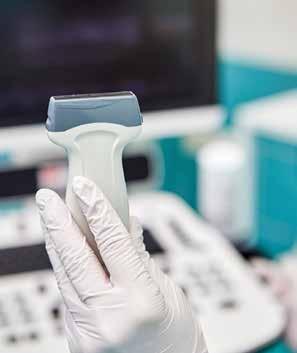AAEM NEWS PRESIDENT’S MESSAGE
An Emergency Physician is NOT a Provider Lisa A. Moreno, MD MS MSCR FAAEM FIFEM — President, AAEM
I have had a real issue with this word almost since its introduction into medical vernacular. I often plagiarize a physician’s response I read sometime ago on social media, “Sorry, I never went to provider school. I went to medical school.” When I was a child, we used to respond to hurtful comments about our racial and ethnic backgrounds with a pithy jingle, “Sticks and stones may break my bones, but words can never hurt me.” How untrue this was then, and still is now. We have evolved as a society to the understanding that WORDS ARE POWERFUL, and what we call ourselves and each other, how we describe a given situation, very much matters and can very much hurt or help our interpersonal relationships. The word “provider” when used in reference to a health care professional has its origins with insurance companies and government agencies who seek to create in our patients the attitude that there is no difference among health care professionals, and so if they have seen a “provider,” they have received the highest level of care and their health concerns have been resolved and/or are being managed appropriately. The term gained popularity as it has been taken up by corporate medical groups with the same intended outcome. These “vendors” of medical care, as they call themselves, all can save lots and lots of money when patients are treated by “providers.” The problem is that all “providers” are NOT equal and that allowing, or leading patients to think so is dishonest and lacks integrity. AAEM’s mission statements stand clear that a board certified emergency physician is the only definition of a specialist in emergency medicine and that every patient in the world is entitled to this level of care when faced with a medical emergency. Our mission includes the support of EM residency training and CME, as well as the development of EM as a specialty world-wide. Our EM Workforce Committee, under the leadership of Dr. Marcolini and Dr. Vieth, has developed public statements based on hard facts to demonstrate that there is a difference and that it does matter.
I WILL NOT TOLERATE THE OBLITERATION OF THE INTEGRITY OF MY PROFESSION USING A WORD THAT SEEKS TO MAKE ME A GENERIC ENTITY.” The word “physician” is defined by the Oxford Dictionary as “a person qualified to practice medicine.” (italics mine)1 and the Merriam Webster dictionary defines it as “one educated, clinically experienced, and licensed to practice medicine.”2 Clinically experienced, qualified, and licensed to practice medicine is very different from clinically experienced, qualified, and licensed to practice physician assistance or any form of nursing. As the EM Workforce Committee points out, some nurse practitioners are entirely trained online, with no new clinical experience required to earn this advanced degree.
HAVE EVOLVED AS A SOCIETY TO THE UNDERSTANDINGWETHAT WORDS ARE POWERFUL, AND WHAT WE CALL OURSELVES AND EACH OTHER, HOW WE DESCRIBE A GIVEN SITUATION, VERY MUCH MATTERS AND CAN VERY MUCH HURT OR HELP OUR INTERPERSONAL RELATIONSHIPS.” The origin of the word “physician” comes from both French and Middle English, meaning “one who practices the science of healing.”. The linguist Janus Bahs Jacquet points out that a literal translation connotes “relating to that which is.”3 This derivation implies a grounding in truth, as we relate to our patients in the context in which they exist, making our responsibility for them far greater than a mere commitment to their chief complaint. Our Hippocratic Oath mandates that we live in purity and holiness.4 The Oath of the Hindu Physician, the Daily Prayer of Maimonides, and The Thousand Golden Remedies (China) all command the physician to be committed to truth and integrity in all aspects of his or her life.5 In the days in which Ibn Sina wrote the Canon of Medicine, physicians were required to pass examinations not only in the natural sciences and pharmacology, but also in religion, fine arts, law, philosophy, astrology, and mathematics. It was accepted that since the physician dispenses advice and treatment that impacts every aspect of a patient’s life, s/he must be a scholar and a person of wisdom to perform that role. And of note, female physicians were not a rarity in these Islamic medical universities.6 The Declaration of Geneva, developed after the horrific medical experimentation and abuses committed during the Second World War and to which I swore on my graduation day from medical school, states, “I solemnly pledge myself to consecrate my life to the service of humanity…The health of my patient will be my first consideration…I will maintain the utmost respect for human life…even under threat and I will not use
>>
COMMON SENSE JANUARY/FEBRUARY 2021
3























